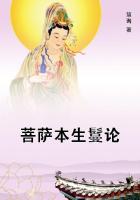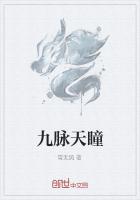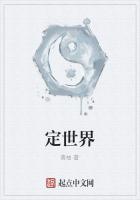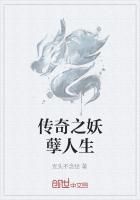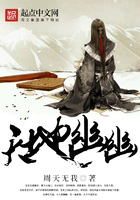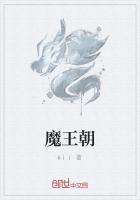So these words of the valuers cut him sharp, although he affected to disbelieve them, and tried to persuade himself that he did so.But, after all, these cares and disappointments did not touch the root of his deep resentment against Osborne.There is nothing like wounded affection for giving poignancy to anger.And the squire believed that Osborne and his advisers had been making calculations, based upon his own death.He hated the idea so much - it made him so miserable - that he would not face it, and define it, and meet it with full inquiry and investigation.He chose rather to cherish the morbid fancy that he was useless in this world - born under an unlucky star - that all things went badly under his management.But he did not become humble in consequence.He put his misfortunes down to the score of Fate - not to his own; and he imagined that Osborne saw his failures, and that his first-born grudged him his natural term of life.All these fancies would have been set to rights could he have talked them over with his wife; or even had he been accustomed to mingle much in the society of those whom he esteemed his equals; but, as has been stated, he was inferior in education to those who should have been his mates; and perhaps the jealousy and mauvaise honte that this inferiority had called out long ago, extended itself in some measure to the feelings he entertained towards his sons - less to Roger than to Osborne, though the former was turning out by far the most distinguished man.But Roger was practical; interested in all out-of-doors things, and he enjoyed the details, homely enough, which his father sometimes gave him of the every-day occurrences which the latter had noticed in the woods and the fields.Osborne, on the contrary, was what is commonly called 'fine;' delicate almost to effeminacy in dress and in manner; careful in small observances.All this his father had been rather proud of in the days when he had looked forward to a brilliant career at Cambridge for his son; he had at that time regarded Osborne's fastidiousness and elegance as another stepping-stone to the high and prosperous marriage which was to restore the ancient fortunes of the Hamley family.But now that Osborne had barely obtained his degree; that all the boastings of his father had proved vain; that the fastidiousness had led to unexpected expenses (to attribute the most innocent cause to Osborne's debts), the poor young man's ways and manners became a subject of irritation to his father.Osborne was still occupied with his books and his writings when he was at home; and this mode of passing the greater part of the day gave him but few subjects in common with his father when they did meet at meal-times, or in the evenings.Perhaps if Osborne had been able to have more out-of-door amusements it would have been better; but he was short-sighted, and cared little for the carefully-observant pursuits of his brother: he knew but few young men of his own standing in the county; his hunting even, of which he was passionately fond, had been curtailed this season, as his father had disposed of one of the two hunters he had been hitherto allowed.The whole stable establishment had been reduced; perhaps because it was the economy which told most on the enjoyment of both the squire and Osborne, and which, therefore, the former took a savage pleasure in enforcing.The old carriage - a heavy family coach bought in the days of comparative prosperity - was no longer needed after madam's death, and fell to pieces in the cobwebbed seclusion of the coach-house.' The best of the two carriage-horses was taken for a gig, which the squire now set up; saying many a time to all who might care to listen to him that it was the first time for generations that the Hamleys of Hamley had not been able to keep their own coach.The other carriage-horse was turned out to grass; being too old for regular work.Conqueror used to come whinnying up to the park palings whenever he saw the squire, who had always a piece of bread, or some sugar, or an apple for the old favourite - and made many a complaining speech to the dumb animal, telling him of the change of times since both were in their prime.It had never been the squire's custom to encourage his boys to invite their friends to the Hall.Perhaps this, too, was owing to his mauvaise honte , and also to an exaggerated consciousness of the deficiencies of his establishment as compared with what he imagined these lads were accustomed to at home.He explained this once or twice to Osborne and Roger when they were at Rugby.'You see, all you public schoolboys have a kind of freemasonry of your own, and outsiders are looked on by you much as I look on rabbits and all that isn't game.Ay, you may laugh, but it is so; and your friends will throw their eyes askance at me, and never think on my pedigree, which would beat theirs all to shivers, I'll be bound.No: I'll have no one here at the Hall who will look down on a Hamley of Hamley, even if he only knows how to make a cross instead of write his name.' Then, of course, they must not visit at houses to whose sons the squire could not or would not return a like hospitality.On all these points Mrs Hamley had used her utmost influence without avail; his prejudices were immovable.As regarded his position as head of the oldest family in three counties, his pride was invincible; as regarded himself personally - ill at ease in the society of his equals, deficient in manners, and in education - his morbid sensitiveness was too sore and too self-conscious to be called humility.Take one instance from among many similar scenes of the state of feeling between the squire and his eldest son, which, if it could not be called active discord, showed at least passive estrangement.It took place on an evening in the March succeeding Mrs Hamley's death.
同类推荐
热门推荐
花季雨季正当时(指导学生身心健康发展故事集)
学生时代,是一个充满理想的季节,也是人体发育的转折关键期,这一时期,如何正确认识和对待自己的生理变化,怎样面对生活和生理的各种烦恼,是决定青少年身心是否健康的关键。


